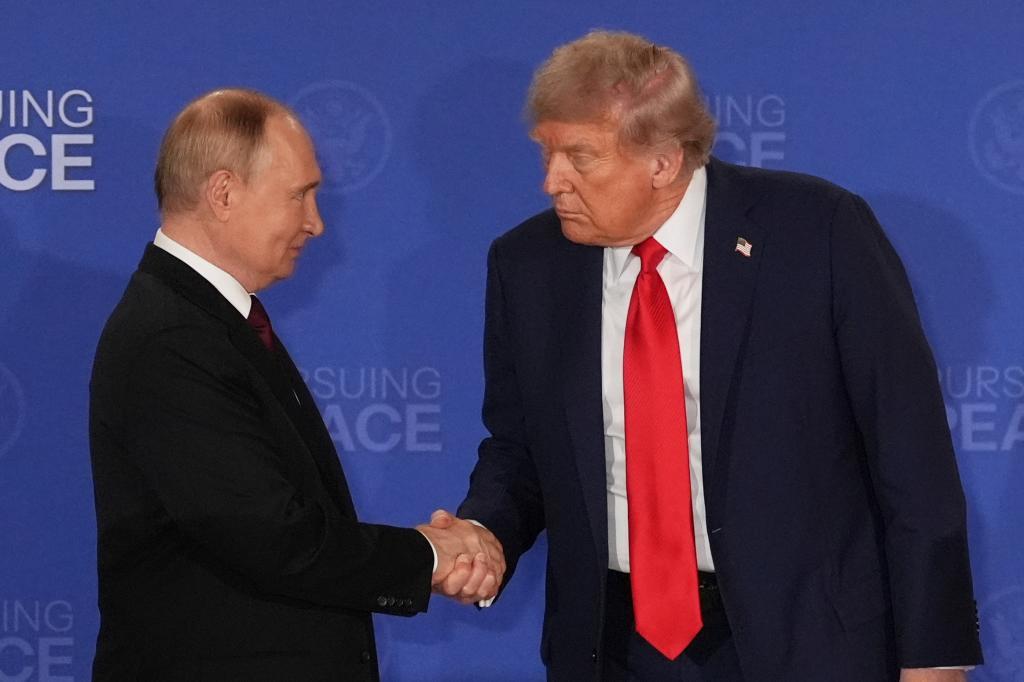The President of the United States, Donald Trump, spoke on the phone this Thursday with the Russian President, Vladimir Putin, in a new attempt by the American to push Moscow towards a peace agreement with Ukraine. The conversation, the first between them since their meeting in August in Alaska, comes on the eve of a new trip by Volodimir Zelenski to Washington. Although the White House has not mentioned specific progress, it has led to both leaders scheduling a meeting shortly in Hungary.
Trump was the first to give his version in a message posted on his social media. "I just concluded my phone conversation with the Russian President, Vladimir Putin, and it was very productive. President Putin congratulated us and the United States for the great achievement of peace in the Middle East, something that, he said, has been dreamed of for centuries. I firmly believe that this success in the Middle East will contribute to our negotiations to end the war with Russia and Ukraine. President Putin thanked the First Lady, Melania, for her commitment to children. He was very grateful and stated that this commitment will continue. We also spent considerable time discussing trade between Russia and the United States once the war with Ukraine is over," he said.
The beginning, in pure Trump style, mixes many different things. He says the conversation was productive, something he has said on all previous occasions except one. At the same time, he praises himself for the agreement between Israel and Hamas, which Putin had already praised the previous week. Additionally, he mentions his family and the Russian's gratitude. Trump's relationship with Putin is one of his obsessions, and almost every time he mentions it, he emphasizes that they have a great relationship, even though occasionally he acknowledges that it is not achieving the goal of ending the war in Ukraine. Lastly, he addresses the issue of trade, which in the Trumpian worldview conditions everything: if someone is hostile, he imposes tariffs; if someone is a friend, he gives them the "honor and privilege" of trading with the United States. And in this way, he argues, problems will be resolved. A vision that does not align at all with Putin and Russian nationalism.
The second part of his message on Truth Social pertains to the logistics of the coming weeks. The Ukrainian delegation has been in Washington all week, and Zelenski will join tomorrow, Friday. After their historic clash in the spring, relations between them have improved significantly, while the White House seemed to be realizing that it has no leverage over the Kremlin and that Putin does not have much intention of signing a peace deal. Hence, the talk in the U.S. capital is whether Trump will authorize the delivery of Tomahawk missiles to Kiev. "Zelenski wants the missiles, and we have many. If this war is not resolved, we could send Tomahawks. It's an incredible weapon. And Russia doesn't need it. If the war is not resolved, we could do it. Maybe not. But we could," the president said a couple of days ago.
"At the end of the call, we agreed to a meeting of our high-level advisors next week. The initial U.S. meetings will be led by Secretary of State Marco Rubio, along with other individuals to be designated soon. The meeting place is yet to be determined. President Putin and I will meet at an agreed location, Budapest, Hungary, to see if we can end this 'ignominious' war between Russia and Ukraine. President Zelenski and I will meet tomorrow in the Oval Office, where we will discuss my conversation with President Putin and many other topics. I believe today's phone call has taken a big step forward," Trump concluded.
Budapest has been in the White House's speculations for two months. Trump talks, for now, about a possible meeting with Putin, but in August, there was consideration for a three-party meeting, including Zelenski as well. It all depends on the meeting tomorrow in the Oval Office, but Hungary is an unthinkable or nearly impossible option for the Ukrainians. Viktor Orban is Putin's main ally in the EU, the one who has posed the most obstacles to sanctions against Moscow and aid to Kiev in recent years. At the same time, he is one of Trump's key allies in Europe.
In August, it was reported that the U.S. Secret Service was already on the ground analyzing the security measures in the Hungarian capital, but at that time, the White House neither confirmed nor denied it. If before their meeting with Putin in Alaska, European leaders conspired to pressure Trump, the same will happen now, if the meeting between Marco Rubio and the Russian team goes well and clears the way.
